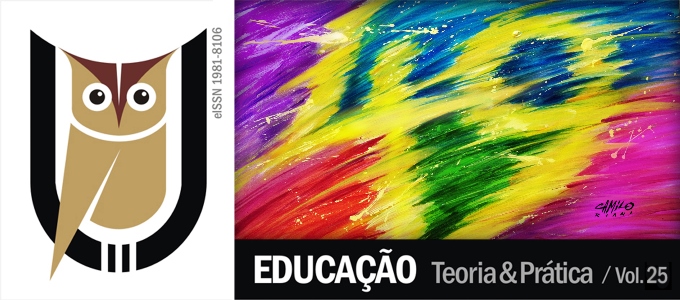Field Education in Debate: experiences of fight!
DOI:
https://doi.org/10.18675/1981-8106.vol25.n49.p326-339Keywords:
Field Education, School Organization, Struggle, Education.Abstract
In this paper approached the question the field education as a potentiality for greater participation of the families of students in the organization and daily life of schools in rural settlements. In many cases, urban educational standards are reproduced uncritically on peasant territory. Thus, the school becomes an alienated and alienating element before its spatial context and struggle of the settlements. The work is based in the investigative experience in Paulo Freire’ Educator School, located in the settlement Rodeo in the Presidente Bernardes City, in São Paulo State. To discuss the need for dialogue as forums on the field education and collective meetings with the school community, so that the school is effectively that peasant population, built and organized according to the demands of this location and territory. In this sense, communication and the construction of channels that care about dialogue so that the community can express themselves and be able to attend the school, are fundamental issues to be discussed at a prerogative which is based on democratic posture of the school.Downloads
Additional Files
Published
How to Cite
Issue
Section
License
Authors who publish in this journal agree to the following terms:
a) Authors assign copyright to the journal, with the work simultaneously licensed under the Creative Commons Attribution License that allows sharing of the work with acknowledgment of authorship and publication in this journal.
b) The policy adopted by the Editorial Committee is to assign copyright only after a period of 30 months from the date of publication of the article. After this time, authors interested in publishing the same text in another work must send a letter to the Editorial Committee requesting the release of the assignment of copyright and wait for a response.
c) This journal provides public access to all its content, since this allows greater visibility and reach of published articles and reviews. For more information on this approach, visit the Public Knowledge Project, a project that developed this system to improve the academic and public quality of research, by distributing OJS as well as other software to support the public access publication system to academic sources. The names and email addresses on this website will be used exclusively for the purposes of the journal and will not be available for other purposes. This journal provides open any other party  This work is licensed under a Creative Commons License
This work is licensed under a Creative Commons License











